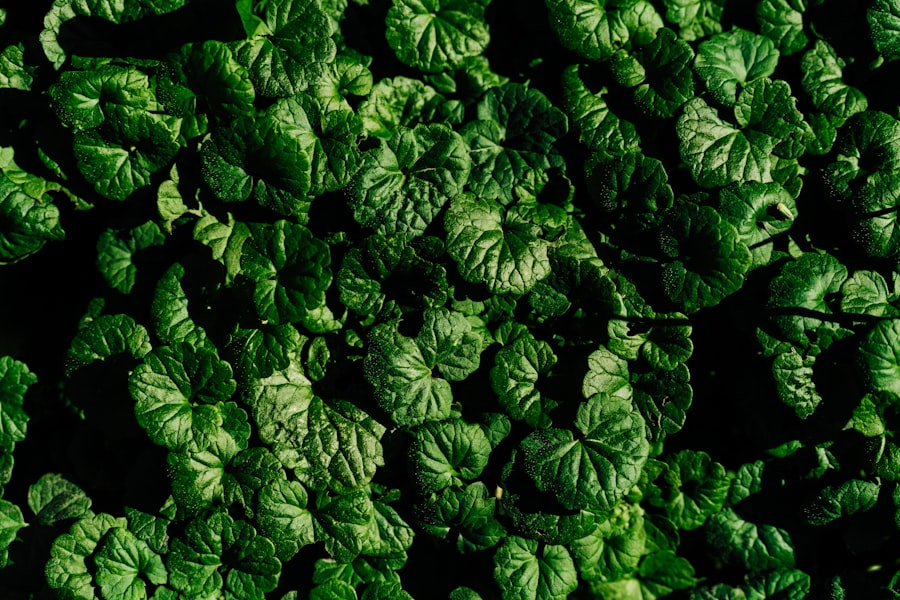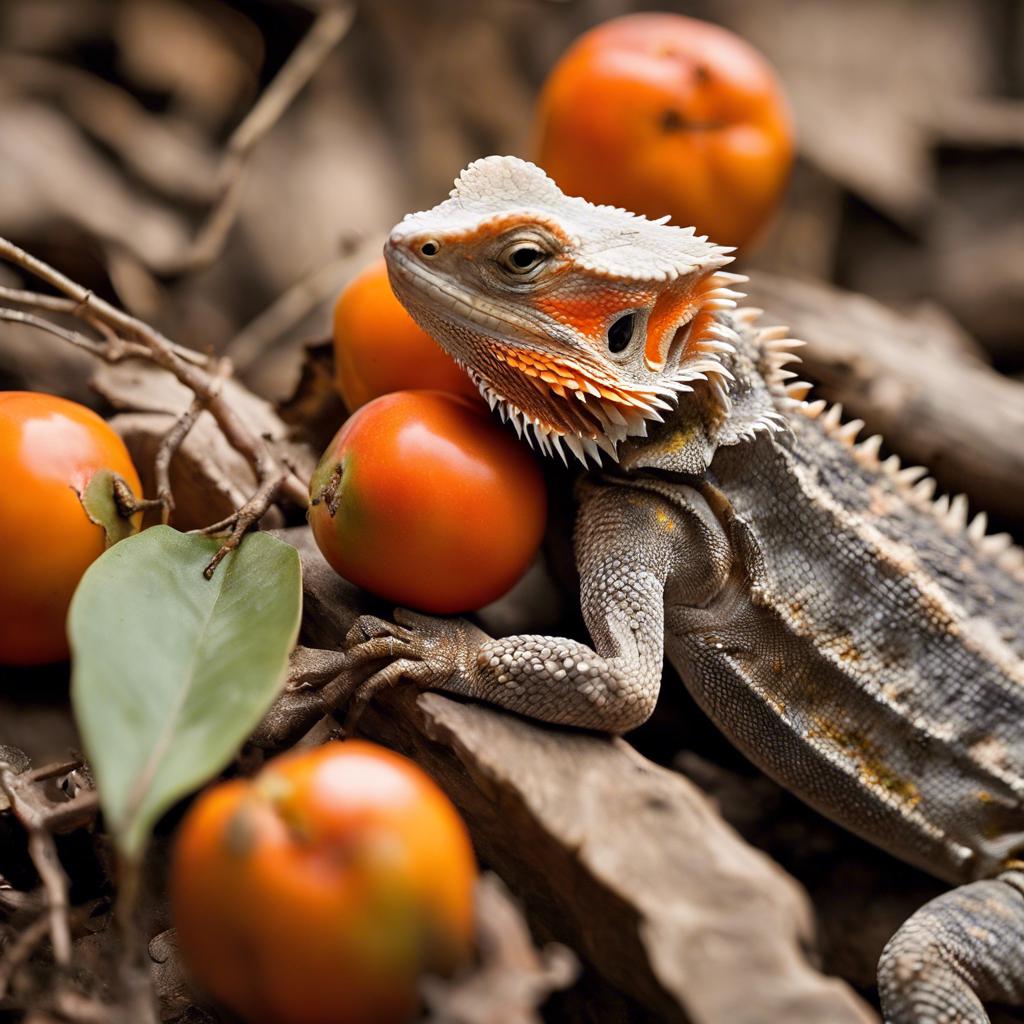A balanced diet is crucial for the health and well-being of any living creature, and bearded dragons are no exception. These reptiles require a diverse range of nutrients to thrive, and their diet should consist of a variety of fruits, vegetables, insects, and other foods. In this article, we will explore the nutritional value of persimmons and whether or not they can be included in a bearded dragon's diet. We will also discuss the benefits and risks of feeding persimmons to these reptiles, as well as provide guidelines on how to prepare and feed them.
Key Takeaways
- Persimmons are a type of fruit that can be fed to bearded dragons.
- Persimmons are high in fiber, vitamins A and C, and potassium.
- Bearded dragons can safely eat persimmons in moderation as part of a balanced diet.
- Feeding persimmons to bearded dragons can improve digestion and boost their immune system.
- However, overfeeding persimmons can lead to diarrhea and other digestive issues, so it's important to limit their intake and prepare them properly.
What are Persimmons?
Persimmons are a type of fruit that originated in China and have been cultivated for thousands of years. They belong to the Ebenaceae family and are known for their sweet and tangy flavor. There are two main types of persimmons: astringent and non-astringent. Astringent persimmons are high in tannins, which give them a bitter taste when they are not fully ripe. Non-astringent persimmons, on the other hand, can be eaten when they are still firm and have a milder flavor.
Nutritional Value of Persimmons
Persimmons are packed with essential nutrients that can benefit the health of bearded dragons. They are a good source of vitamins A, C, and E, as well as dietary fiber. Vitamin A is important for maintaining healthy skin, eyesight, and immune function in bearded dragons. Vitamin C is an antioxidant that helps protect cells from damage and supports the immune system. Vitamin E is essential for reproductive health and acts as an antioxidant in the body. Dietary fiber aids in digestion and helps prevent constipation.
Persimmons also contain minerals such as potassium, manganese, and copper. Potassium is important for maintaining proper fluid balance in the body and supporting nerve and muscle function. Manganese is involved in the metabolism of carbohydrates, proteins, and fats, while copper is necessary for the production of red blood cells and connective tissues.
Can Bearded Dragons Eat Persimmons?
Yes, bearded dragons can eat persimmons in moderation. However, it is important to note that persimmons should not be the main component of their diet. They should be offered as a treat or occasional addition to their regular meals. It is also important to choose ripe persimmons that are soft and have a sweet taste, as unripe persimmons can be astringent and cause digestive upset in bearded dragons.
Benefits of Feeding Persimmons to Bearded Dragons
Feeding persimmons to bearded dragons can provide several benefits. Firstly, they are a good source of vitamins A, C, and E, which are essential for their overall health and well-being. These vitamins support immune function, promote healthy skin and eyesight, and act as antioxidants in the body.
Persimmons also contain dietary fiber, which aids in digestion and helps prevent constipation in bearded dragons. This is particularly important as bearded dragons are prone to digestive issues such as impaction. Including fiber-rich foods like persimmons in their diet can help keep their digestive system healthy.
Additionally, persimmons are a tasty treat for bearded dragons and can provide enrichment and variety in their diet. Offering different types of fruits and vegetables can stimulate their senses and prevent boredom.
Risks of Feeding Persimmons to Bearded Dragons

While persimmons can be a healthy addition to a bearded dragon's diet, there are some risks associated with feeding them to these reptiles. As mentioned earlier, unripe persimmons can be astringent and cause digestive upset in bearded dragons. It is important to choose ripe persimmons that are soft and have a sweet taste to avoid any potential issues.
Another risk is overfeeding. Persimmons, like other fruits, are high in natural sugars. Feeding too much fruit to bearded dragons can lead to weight gain, obesity, and other health problems. It is important to offer persimmons as a treat or occasional addition to their regular meals and not as a staple food.
How to Prepare Persimmons for Bearded Dragons
Before feeding persimmons to bearded dragons, it is important to properly prepare them. Start by choosing ripe persimmons that are soft and have a sweet taste. Wash the persimmons thoroughly to remove any dirt or pesticides. Remove the skin and seeds, as they can be difficult for bearded dragons to digest.
Next, cut the persimmons into small, bite-sized pieces that are easy for bearded dragons to eat. You can offer the persimmons as is or mix them with other fruits and vegetables to create a balanced meal. It is important to monitor your bearded dragon while they are eating and remove any uneaten food after a few hours to prevent spoilage.
Frequency of Feeding Persimmons to Bearded Dragons
Persimmons should be fed to bearded dragons in moderation. They should not make up more than 10% of their overall diet. It is recommended to offer persimmons as a treat or occasional addition to their regular meals, rather than as a staple food. This will ensure that they receive a balanced diet that includes a variety of nutrients from different sources.
The frequency of feeding persimmons can vary depending on the age, size, and health of your bearded dragon. As a general guideline, adult bearded dragons can be offered persimmons once or twice a week, while younger dragons may benefit from more frequent feedings. It is important to monitor your bearded dragon's weight and overall health and adjust their diet accordingly.
Other Fruits and Vegetables for Bearded Dragons
In addition to persimmons, there are several other fruits and vegetables that can be included in a bearded dragon's diet. Some examples include leafy greens like kale, collard greens, and dandelion greens, as well as fruits like apples, berries, and melons. These foods provide a variety of nutrients and can contribute to a balanced diet for bearded dragons.
When feeding fruits and vegetables to bearded dragons, it is important to offer a diverse range of options and rotate them regularly. This will ensure that they receive a wide range of nutrients and prevent them from becoming bored with their food. It is also important to wash all fruits and vegetables thoroughly to remove any dirt or pesticides before feeding them to your bearded dragon.
Importance of a Balanced Diet for Bearded Dragons
In conclusion, a balanced diet is essential for the health and well-being of bearded dragons. Persimmons can be included in their diet as a treat or occasional addition, but should not make up more than 10% of their overall diet. They are a good source of vitamins A, C, and E, as well as dietary fiber, which can benefit the health of bearded dragons.
However, it is important to choose ripe persimmons that are soft and have a sweet taste to avoid any potential digestive issues. It is also important to feed persimmons in moderation and not as a staple food, as they are high in natural sugars.
In addition to persimmons, there are several other fruits and vegetables that can be fed to bearded dragons to provide a variety of nutrients. It is important to offer a diverse range of options and rotate them regularly to ensure that they receive a balanced diet.
Overall, it is important for bearded dragon owners to continue researching and providing a variety of foods for their pets. A balanced diet is crucial for their health and well-being, and can contribute to a long and happy life.
If you're wondering whether bearded dragons can eat persimmons, you might also be interested in learning about the potential risks of feeding them certain foods. In a related article on Reptile Wizard, you can find information about the dangers of feeding bearded dragons black olives and black beans. Understanding what foods are safe and beneficial for your pet is crucial to their health and well-being. To read more about this topic, check out the article “Can Bearded Dragons Eat Black Olives and Black Beans?” on Reptile Wizard's website.
FAQs
What are persimmons?
Persimmons are a type of fruit that are native to China and Japan. They are typically orange or red in color and have a sweet, slightly tangy flavor.
Can bearded dragons eat persimmons?
Yes, bearded dragons can eat persimmons in moderation. However, it is important to remove the seeds and skin before feeding them to your pet.
What are the nutritional benefits of persimmons for bearded dragons?
Persimmons are a good source of vitamin A, vitamin C, and fiber, which can help support your bearded dragon's overall health.
Are there any risks associated with feeding persimmons to bearded dragons?
While persimmons are generally safe for bearded dragons to eat, they do contain a high amount of sugar. Feeding your pet too many persimmons can lead to weight gain and other health issues.
How often should I feed persimmons to my bearded dragon?
Persimmons should be fed to bearded dragons in moderation, as a treat rather than a regular part of their diet. It is recommended to feed them once or twice a month.

